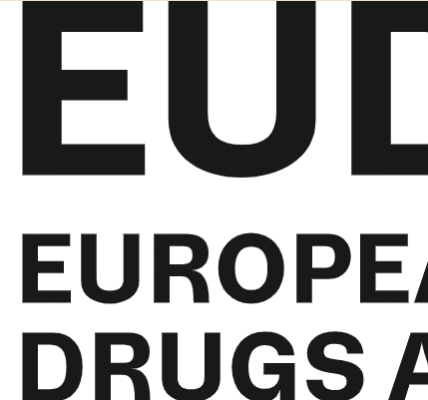Myths and Facts About Addiction Recovery

Michigan Medicine is the name of the University of Michigan’s academic medical center, combining research, education and clinical care. Within the Department of Psychiatry resides Michigan Medicine’s Addiction Treatment Services team. The team is showcased in a recent discussion on “Understanding the Recovery Journey Through Science and Personal Stories.” The discussion was broadcast by Michigan Medicine’s “Mind Matters” series on YouTube.
The 90-minute discussion features Monwabisi Makola, M.D., Ph.D., an addiction psychiatry fellow at the Addiction Center; Emily Smith, L.M.S.W., C.A.A.D.C., a clinical social worker at the Addiction Consult Team; and Mark Ilgen, Ph.D., director of Addiction Treatment Services. Stephany Daniel, a communications specialist with the Department of Psychology, published a summary of the discussion under the headline, “8 facts about addiction and recovery,” several of which seem misleading or incorrect.
1. Substance use rose considerably during the COVID-19 pandemic
It sure did. Researchers report, “Since the onset of COVID-19, there has been a 23% increase in alcohol abuse and a 16% increase in drug abuse for people who had consumed those substances before the pandemic.”
However, the increase was not uniform. Contrary to expectations, teens actually had fewer substance use disorder problems after the pandemic than before. According to the National Institutes of Health, “fewer teens reported binge drinking, vaping, or using cannabis after COVID compared with before COVID, and alcohol use was unchanged.”
2. Addiction is treatable
This is obviously true on the face of it. However, there are no medically approved treatments for stimulant addictions, such as cocaine and methamphetamine. Further, they should mention that the majority of people who suffer from a substance use disorder recover without treatment. I believe that’s a better track record than any approved treatment for substance use disorders.
3. Addiction treatment can improve your quality of life
This is absolutely true, even if you are not addicted to anything. Medication for addiction results in relapse if it is not accompanied by therapy and lifestyle changes. The medication essentially buys the patient time to adjust their behavior. If they don’t adjust their behavior, the substance abuse resumes the minute the medication ends.
The therapy and lifestyle changes needed can benefit everyone, not just addicts, but anyone suffering from anxiety, depression, and stress. Substance abuse is one way of displacing the stress that comes from pain, fear, and disappointment, but it’s not the only way. The therapy and lifestyle changes required for recovery involve finding healthier ways to deal with difficulties, and can benefit anyone.
4. Treatment isn’t one-size-fits-all; there are many paths to recovery
Every single path to recovery is individual; no two people bring the same genetics and life history into treatment with them. Without a holistic approach, treatment is likely to be ineffective. For example, emergency medical providers can use naloxone to stop an overdose from killing a patient, but without connecting the patient to a plausible treatment program the problem will likely persist.
Importantly, we know what works and we don’t need to wait for addiction for treatment to begin. The treatment involves building resilience and reducing impulsivity. It can begin in infancy. It can be taught through conditioning. There is no path to recovery that does not go through building the self-control to say no, even if it’s just for one day.
5. Relapse is part of treatment
I find it hard to agree with this “fact.” I think relapse is failure, a failure the patient must expect and must learn to overpower. Every time you put out a cigarette, you’re “quitting.” Recovery involves learning how to recognize the craving and rechannel the stress into a substitute activity. You’re highly likely to fail quitting smoking the first time, but you can learn things from that failure that help you steel your resolve for next time. The same is true when limiting any addictive substances.
6. Addiction treatment isn’t about having the “willpower” to stop
Oh my gosh, yes it is! Stop taking Ozempic for weight loss and the weight will come back. Stop taking medications for opioid addiction, and the addiction will come back. Stop wearing nicotine patches and the smoking will come back. Without developing the willpower to resist cravings, addiction will come back. Virtually all of the successful treatments for substance use disorders involve strengthening the willpower.
7. Despite good treatment success rates for addiction, few people receive treatment
The article cites the statistic that “92% of people with substance use disorder don’t seek treatment,” a number I find highly suspect. By definition, a substance use disorder is a condition that is causing problems for the patient, and the patient wants to quit but feels they cannot on their own. Technically, it’s not a substance use disorder if you don’t seek treatment. It’s a bad habit.
It might not even be a bad habit. People can become addicted to good habits as well: healthy foods and exercise. Chronic use of a substance that is kept within bounds that work for the user and society is not considered addiction. For those who do want to quit, treatment does offer a pretty reliable path of medical intervention plus therapy and lifestyle changes. Much of it can be successfully delivered via smartphone.
8. You don’t need to have the answers before you ask for help
I like the sentiment, but there is a risk in revealing substance use disorders that is not unreasonable. People can lose their employment over substance use disorders. Their life insurance rates could increase and, in some cases, their health insurance rates could increase. There are numerous weak points in the data chain that comes from including substance use disorders and prescriptions in medical records. As I write this, the nominee for Secretary of Defense is being grilled about alcohol use disorder at his confirmation hearing.
It is natural and understandable that patients will do their own research, often before approaching a medical professional or even a family member. They will look online and hopefully find a wealth of credible information about how to build the willpower needed to moderate substance abuse. AddictionNews.com is such a library of scholarly information on addictive behavior and recovery. We welcome you to investigate it.
Written by Steve O’Keefe. First published January 21, 2025.
Sources:
“8 facts about addiction and recovery,” Michigan Medicine, January 15, 2025.
“Mind Matters: Understanding the Recovery Journey Through Science and Personal Stories,” Michigan Medicine, September 26, 2024.
“Substance use during COVID-19 pandemic: impact on the underserved communities,” Discoveries, December 31, 2021.
“COVID-19 and Substance Use in Adolescents,” Pediatric Clinics of North America, May 18, 2021.
“The Search for Medications to Treat Stimulant Dependence,” Addiction Science & Clinical Practice, June 2008.
“Obsession with healthy eating can lead to addiction and mental illness, study finds,” The Telegraph, December 30, 2024.
Image Copyright: eenevski.




